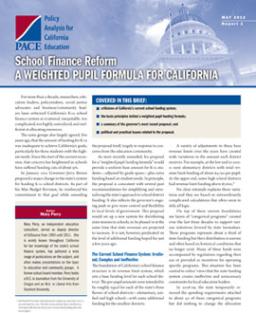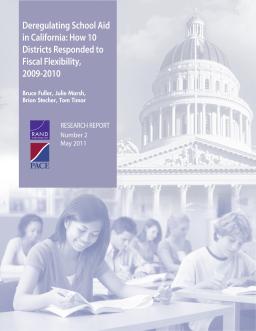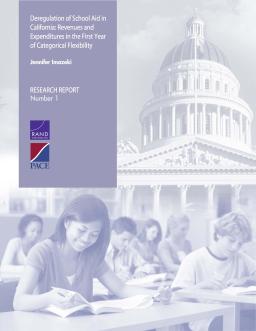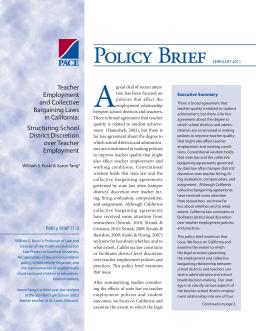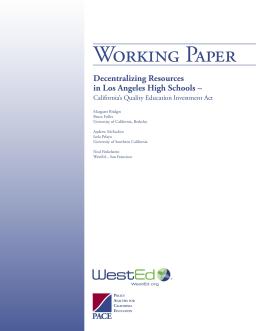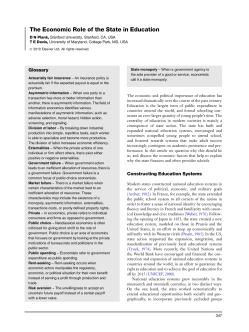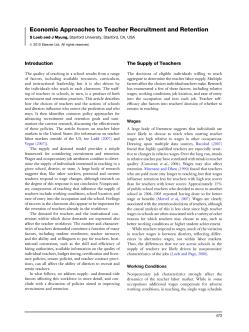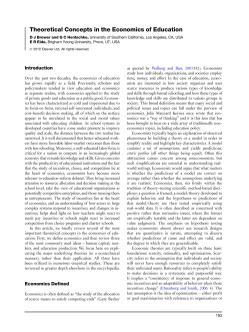A Weighted Pupil Formula for California
Published
Summary
Governor Jerry Brown has called for a major overhaul of California’s school finance policies. His proposal for a weighted pupil funding system would simplify the rules that govern the distribution of funds to schools and school districts, while targeting a larger share of available resources to the schools and students with the greatest needs. In this policy report Mary Perry offers an overview and analysis of the policy change that the Governor has proposed.
How 10 Districts Responded to Fiscal Flexibility, 2009–2010
Published
Summary
This report explores how 10 California school districts responded to the deregulation of $4.5 billion in education funding, which became entirely flexible in 2009. The study investigates how district leaders made budget decisions and what local factors influenced their responses. The research was conducted by a team of scholars from the RAND Corporation, UC Berkeley, UC Davis, and San Diego State University.
Revenues and Expenditure in the First Year of Categorical Flexibility
Published
Summary
This report discusses the effects of California's partial release of categorical funds to local school boards in 2009. The increased flexibility has provided an opportunity to observe how districts respond to the policy change, but the impact is difficult to isolate as most districts have been struggling to maintain core services during a severe budget crisis. The report includes preliminary results from an ongoing study of district responses to the increased categorical flexibility.
Structuring School District Discretion over Teacher Employment
Published
Summary
This brief analyzes the relationship between teacher employment, collective bargaining laws, and school district policies in California. The authors examine the extent to which California's legal structure constrains or facilitates district-level discretion over teacher employment policies and practices. They classify various aspects of the teacher-school district employment relationship into four categories, and conclude that California statutory law is somewhat more constraining of administrative decision-making in teacher employment matters than in four other large and diverse states.
California’s Quality Education Investment Act
Published
Summary
This working paper examines the use of Quality Education Investment Act (QEIA) funds, which allocated $2.6B over seven years to California's lowest-performing schools. The authors conducted a study of four Los Angeles high schools to investigate how QEIA dollars were spent in the first year, who made the decisions, and how funds were used to improve teaching and the instructional program. The study found that district officials and principals had discretion in allocating funds, consistent with recent efforts to deregulate categorical-aid programs and give local educators fiscal discretion.
Published
Summary
This article explores the reasons why education has become a central focus of modern societies and the largest public expenditure around the world. The state has built and expanded national education systems, made attending school mandatory, and linked adult success to academic performance. The article delves into the economic factors behind state financing and provision of schools.
Published
Summary
This article discusses how teacher recruitment and retention affect the quality of teaching in schools. The supply and demand model, including wages and non-pecuniary job attributes, influences the supply of potential and current teachers. The demand for teachers depends on factors such as student enrollment and institutional constraints such as hiring authorities' skill and efficiency. The article identifies common policy approaches to improve recruitment and retention and summarizes current research on their effectiveness.
Published
Summary
Economics of education has grown in importance over the past two decades, as education is viewed as a critical factor in a nation's economic success. Economics can help improve the productivity of educational institutions by focusing on incentives, choice, and competition. The article reviews important theoretical concepts in the economics of education, including human capital, markets, and education production, and how they have been used in empirical studies.
